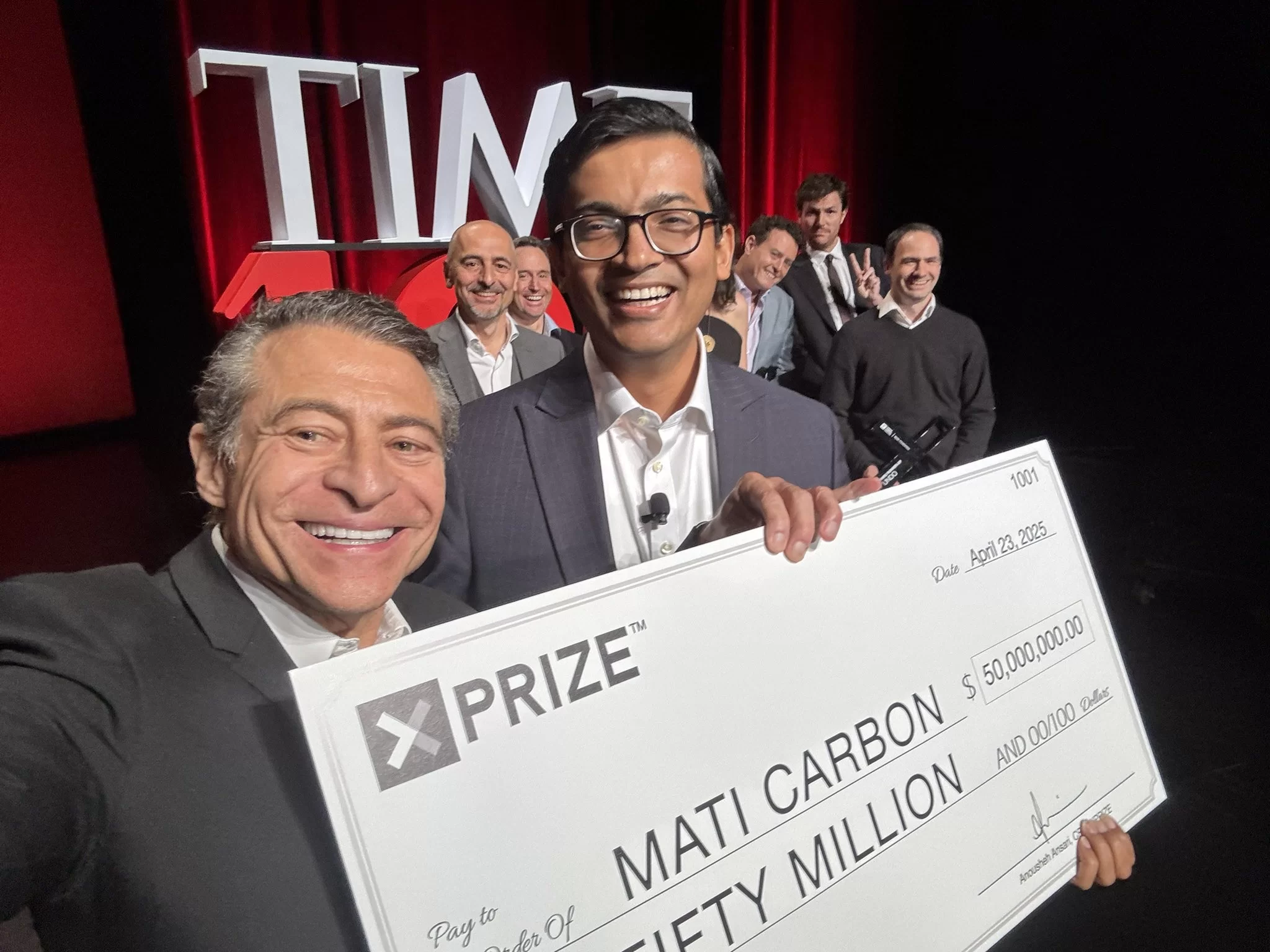- Thursday, April 24, 2025

By: Vibhuti Pathak
In a major win for climate innovation and sustainable agriculture, Indian-American entrepreneur Shantanu Agarwal’s company, Mati Carbon, has emerged as the grand prize winner of the prestigious XPRIZE Carbon Removal competition, backed by Elon Musk’s Musk Foundation.
Beating over 1,300 teams from across 88 countries, Mati Carbon secured a staggering $50 million for its groundbreaking solution that tackles atmospheric carbon while empowering smallholder farmers.
Founded in 2021, Mati Carbon is on a mission to combat climate change through a process known as Enhanced Rock Weathering (ERW). The company uses finely crushed basalt rock, a natural material, spreading it over farmland in regions like India, Zambia, and Tanzania.
Just awarded $100M in @xprize for Gigaton Carbon Removal. Thank you to the Musk Foundation for funding the competition. Congrats to MATI Carbon who walked away with a $50M check-our largest single payout ever! pic.twitter.com/K18vmvPl8K
— Peter H. Diamandis, MD (@PeterDiamandis) April 23, 2025
This accelerates a natural process where rainwater combines with carbon dioxide, forming a mild acid that reacts with the rock and locks carbon away in the earth — effectively storing it for thousands of years.
The brain behind this innovation, Shantanu Agarwal, is no stranger to climate-focused ventures. An alumnus of IIT Roorkee, Harvard Business School, and MIT, Agarwal describes himself as a mission-driven entrepreneur committed to improving rural livelihoods while tackling global environmental challenges.
Through Mati Carbon, he’s marrying technology with local agricultural practices to achieve both environmental sustainability and economic upliftment.
We’re proud to announce the winners of the #XPRIZECarbonRemoval competition!
🏆Grand Prize Winner – $50M: @Mati_Carbon
Runners up:
🥇1st – $15M: @NetZero
🥈2nd – $8M: @VaultedDeep
🥉3rd – $5M: @undocarbonXFACTOR Awards:
OCEANS – $1M: @Planetary_Tech
AIR – $1M: Project Hajar pic.twitter.com/hl4dZHENYh— XPRIZE (@xprize) April 23, 2025
At the heart of Mati Carbon’s approach is its deep collaboration with marginal farmers. So far, the company has worked with over 12,000 farmers across Chhattisgarh, Jharkhand, and Madhya Pradesh, deploying over 130,000 tons of basalt dust. The outcome? Not just verified carbon drawdown — over 1,000 tons of CO₂ removed — but also improved soil health and increased crop yields, leading to more than $1.5 million in additional income for participating farmers.
According to Jake Jordan, the company’s Chief Science Officer, the science behind ERW is relatively simple but powerful. “When it rains, CO₂ mixes with water and forms a weak acid. This naturally breaks down rock, storing carbon as bicarbonate in the ocean,” he explained. Mati Carbon’s innovation lies in scaling this process efficiently and sustainably, using materials already available and creating a win-win scenario for both the planet and people.
The win was announced on Wednesday (23) at the XPRIZE Carbon Removal ceremony, where the judging panel praised Mati Carbon for its durability, scalability, and social impact. Executive director Nikki Batchelor highlighted the team’s exceptional ability to deliver results on operational, sustainability, and cost fronts.
The prize was part of a larger $100 million fund from the Musk Foundation, aimed at accelerating global solutions to carbon pollution.
What set Mati Carbon apart, according to XPRIZE officials, was its commitment to equity and grassroots engagement. In a world where those most affected by climate change often lack the resources to respond, Mati Carbon offers not just environmental restoration but also economic resilience to those most vulnerable.
Shantanu Agarwal believes that climate solutions must be inclusive. “Our method is cost-effective and grounded in the real lives of farmers who are already suffering from erratic weather, floods, and droughts. We’re not just removing carbon — we’re building community resilience.”
As the world races to limit global warming, projects like Mati Carbon offer a glimpse into how climate tech, when combined with local knowledge and empathy, can forge powerful change. With expansion plans already underway across more Indian states and Africa, Agarwal and his team are just getting started.